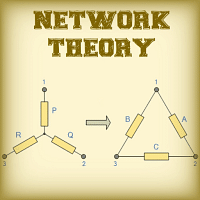Electrical Engineering (EE) Exam > Electrical Engineering (EE) Questions > The main difference between a register and a ...
Start Learning for Free
The main difference between a register and a counter is ___________
- a)A register has no specific sequence of states
- b)A counter has no specific sequence of states
- c)A register has capability to store one bit of information but counter has n-bit
- d)A register counts data
Correct answer is option 'A'. Can you explain this answer?
| FREE This question is part of | Download PDF Attempt this Test |
Most Upvoted Answer
The main difference between a register and a counter is ___________a)A...
Main Difference between a Register and a Counter:
A register and a counter are two fundamental components in digital systems. While both are used to store and manipulate data, they have distinct differences in terms of their functionality and operation. The main difference between a register and a counter is as follows:
a) A register has no specific sequence of states:
A register is a digital circuit that is capable of storing and manipulating a fixed number of bits. It can store data in the form of binary numbers, characters, or any other digital information. Unlike a counter, a register does not have a specific sequence of states. Instead, it can hold a value until it is updated or modified by external inputs or signals.
Key Points:
- A register is a collection of flip-flops or other memory elements that can store and hold data.
- It can store data in parallel, meaning that all the bits can be written or read simultaneously.
- The number of bits in a register determines its capacity or the range of values it can store.
- Registers are commonly used for temporary storage of data, data manipulation, and data transfer between different parts of a digital system.
Example:
Consider an 8-bit register. It can store 8 binary digits (bits) at a time. The register can be loaded with a specific value, and that value remains stored until it is overwritten or modified by new data. The order of bits within the register does not change unless explicitly modified.
b) A counter has no specific sequence of states:
On the other hand, a counter is a sequential circuit that follows a specific sequence of states. It is designed to count the number of occurrences of an event or to keep track of a particular sequence of events. A counter typically consists of flip-flops and combinational logic that determines the next state based on the current state and external inputs.
Key Points:
- A counter can count in a specific sequence, such as binary, decimal, or any other desired sequence.
- It can count up, down, or in any other predetermined order based on the design and requirements.
- The number of bits in a counter determines its maximum count or the range of values it can represent.
- Counters are commonly used in applications like timers, frequency dividers, address generators, and control circuits.
Example:
Consider a 4-bit binary counter. It can count from 0000 to 1111 in binary, which is equivalent to counting from 0 to 15 in decimal. The counter progresses through each state in a specific order, and the sequence repeats after reaching the maximum count.
Conclusion:
In summary, the main difference between a register and a counter is that a register does not follow a specific sequence of states, while a counter does. A register is used for storing and manipulating data, while a counter is used for counting and sequencing events.
A register and a counter are two fundamental components in digital systems. While both are used to store and manipulate data, they have distinct differences in terms of their functionality and operation. The main difference between a register and a counter is as follows:
a) A register has no specific sequence of states:
A register is a digital circuit that is capable of storing and manipulating a fixed number of bits. It can store data in the form of binary numbers, characters, or any other digital information. Unlike a counter, a register does not have a specific sequence of states. Instead, it can hold a value until it is updated or modified by external inputs or signals.
Key Points:
- A register is a collection of flip-flops or other memory elements that can store and hold data.
- It can store data in parallel, meaning that all the bits can be written or read simultaneously.
- The number of bits in a register determines its capacity or the range of values it can store.
- Registers are commonly used for temporary storage of data, data manipulation, and data transfer between different parts of a digital system.
Example:
Consider an 8-bit register. It can store 8 binary digits (bits) at a time. The register can be loaded with a specific value, and that value remains stored until it is overwritten or modified by new data. The order of bits within the register does not change unless explicitly modified.
b) A counter has no specific sequence of states:
On the other hand, a counter is a sequential circuit that follows a specific sequence of states. It is designed to count the number of occurrences of an event or to keep track of a particular sequence of events. A counter typically consists of flip-flops and combinational logic that determines the next state based on the current state and external inputs.
Key Points:
- A counter can count in a specific sequence, such as binary, decimal, or any other desired sequence.
- It can count up, down, or in any other predetermined order based on the design and requirements.
- The number of bits in a counter determines its maximum count or the range of values it can represent.
- Counters are commonly used in applications like timers, frequency dividers, address generators, and control circuits.
Example:
Consider a 4-bit binary counter. It can count from 0000 to 1111 in binary, which is equivalent to counting from 0 to 15 in decimal. The counter progresses through each state in a specific order, and the sequence repeats after reaching the maximum count.
Conclusion:
In summary, the main difference between a register and a counter is that a register does not follow a specific sequence of states, while a counter does. A register is used for storing and manipulating data, while a counter is used for counting and sequencing events.
Free Test
FREE
| Start Free Test |
Community Answer
The main difference between a register and a counter is ___________a)A...
The main difference between a register and a counter is that a register has no specific sequence of states except in certain specialised applications.
Attention Electrical Engineering (EE) Students!
To make sure you are not studying endlessly, EduRev has designed Electrical Engineering (EE) study material, with Structured Courses, Videos, & Test Series. Plus get personalized analysis, doubt solving and improvement plans to achieve a great score in Electrical Engineering (EE).

|
Explore Courses for Electrical Engineering (EE) exam
|

|
Similar Electrical Engineering (EE) Doubts
The main difference between a register and a counter is ___________a)A register has no specific sequence of statesb)A counter has no specific sequence of statesc)A register has capability to store one bit of information but counter has n-bitd)A register counts dataCorrect answer is option 'A'. Can you explain this answer?
Question Description
The main difference between a register and a counter is ___________a)A register has no specific sequence of statesb)A counter has no specific sequence of statesc)A register has capability to store one bit of information but counter has n-bitd)A register counts dataCorrect answer is option 'A'. Can you explain this answer? for Electrical Engineering (EE) 2024 is part of Electrical Engineering (EE) preparation. The Question and answers have been prepared according to the Electrical Engineering (EE) exam syllabus. Information about The main difference between a register and a counter is ___________a)A register has no specific sequence of statesb)A counter has no specific sequence of statesc)A register has capability to store one bit of information but counter has n-bitd)A register counts dataCorrect answer is option 'A'. Can you explain this answer? covers all topics & solutions for Electrical Engineering (EE) 2024 Exam. Find important definitions, questions, meanings, examples, exercises and tests below for The main difference between a register and a counter is ___________a)A register has no specific sequence of statesb)A counter has no specific sequence of statesc)A register has capability to store one bit of information but counter has n-bitd)A register counts dataCorrect answer is option 'A'. Can you explain this answer?.
The main difference between a register and a counter is ___________a)A register has no specific sequence of statesb)A counter has no specific sequence of statesc)A register has capability to store one bit of information but counter has n-bitd)A register counts dataCorrect answer is option 'A'. Can you explain this answer? for Electrical Engineering (EE) 2024 is part of Electrical Engineering (EE) preparation. The Question and answers have been prepared according to the Electrical Engineering (EE) exam syllabus. Information about The main difference between a register and a counter is ___________a)A register has no specific sequence of statesb)A counter has no specific sequence of statesc)A register has capability to store one bit of information but counter has n-bitd)A register counts dataCorrect answer is option 'A'. Can you explain this answer? covers all topics & solutions for Electrical Engineering (EE) 2024 Exam. Find important definitions, questions, meanings, examples, exercises and tests below for The main difference between a register and a counter is ___________a)A register has no specific sequence of statesb)A counter has no specific sequence of statesc)A register has capability to store one bit of information but counter has n-bitd)A register counts dataCorrect answer is option 'A'. Can you explain this answer?.
Solutions for The main difference between a register and a counter is ___________a)A register has no specific sequence of statesb)A counter has no specific sequence of statesc)A register has capability to store one bit of information but counter has n-bitd)A register counts dataCorrect answer is option 'A'. Can you explain this answer? in English & in Hindi are available as part of our courses for Electrical Engineering (EE).
Download more important topics, notes, lectures and mock test series for Electrical Engineering (EE) Exam by signing up for free.
Here you can find the meaning of The main difference between a register and a counter is ___________a)A register has no specific sequence of statesb)A counter has no specific sequence of statesc)A register has capability to store one bit of information but counter has n-bitd)A register counts dataCorrect answer is option 'A'. Can you explain this answer? defined & explained in the simplest way possible. Besides giving the explanation of
The main difference between a register and a counter is ___________a)A register has no specific sequence of statesb)A counter has no specific sequence of statesc)A register has capability to store one bit of information but counter has n-bitd)A register counts dataCorrect answer is option 'A'. Can you explain this answer?, a detailed solution for The main difference between a register and a counter is ___________a)A register has no specific sequence of statesb)A counter has no specific sequence of statesc)A register has capability to store one bit of information but counter has n-bitd)A register counts dataCorrect answer is option 'A'. Can you explain this answer? has been provided alongside types of The main difference between a register and a counter is ___________a)A register has no specific sequence of statesb)A counter has no specific sequence of statesc)A register has capability to store one bit of information but counter has n-bitd)A register counts dataCorrect answer is option 'A'. Can you explain this answer? theory, EduRev gives you an
ample number of questions to practice The main difference between a register and a counter is ___________a)A register has no specific sequence of statesb)A counter has no specific sequence of statesc)A register has capability to store one bit of information but counter has n-bitd)A register counts dataCorrect answer is option 'A'. Can you explain this answer? tests, examples and also practice Electrical Engineering (EE) tests.

|
Explore Courses for Electrical Engineering (EE) exam
|

|
Suggested Free Tests
Signup for Free!
Signup to see your scores go up within 7 days! Learn & Practice with 1000+ FREE Notes, Videos & Tests.
























